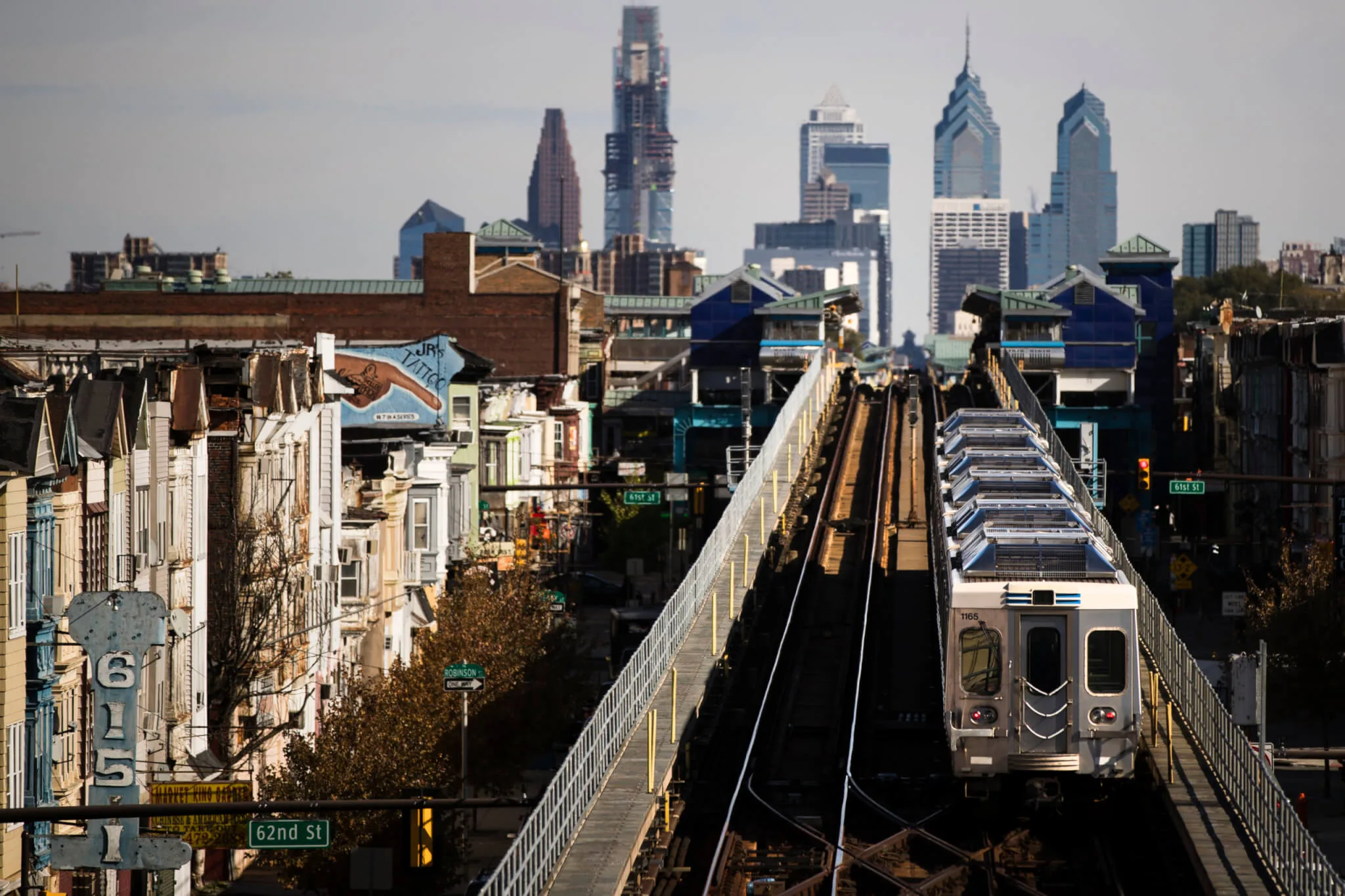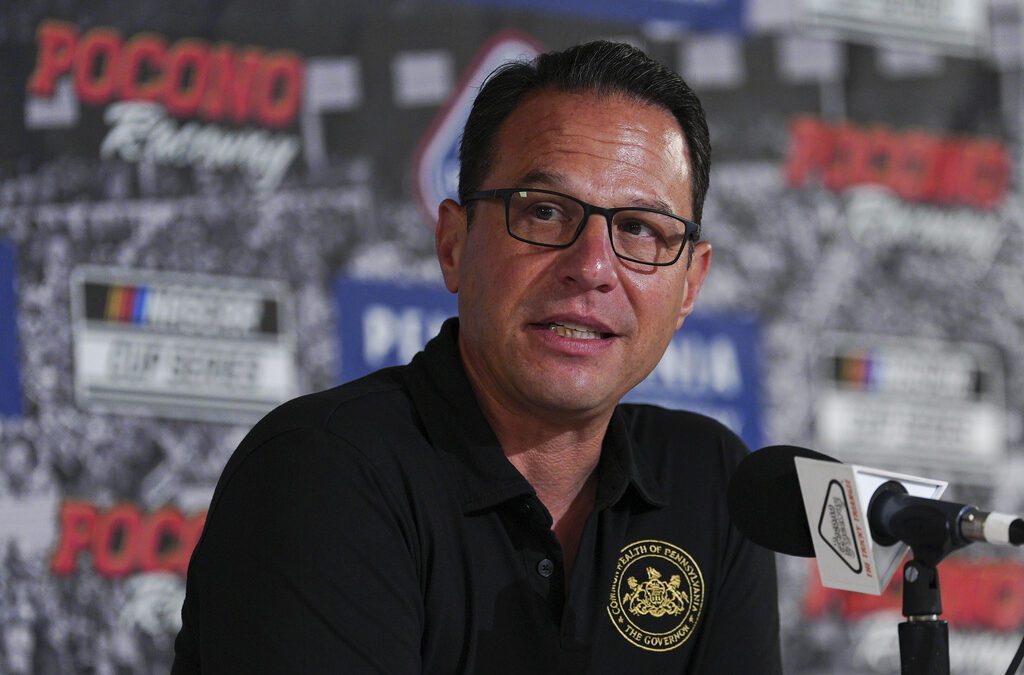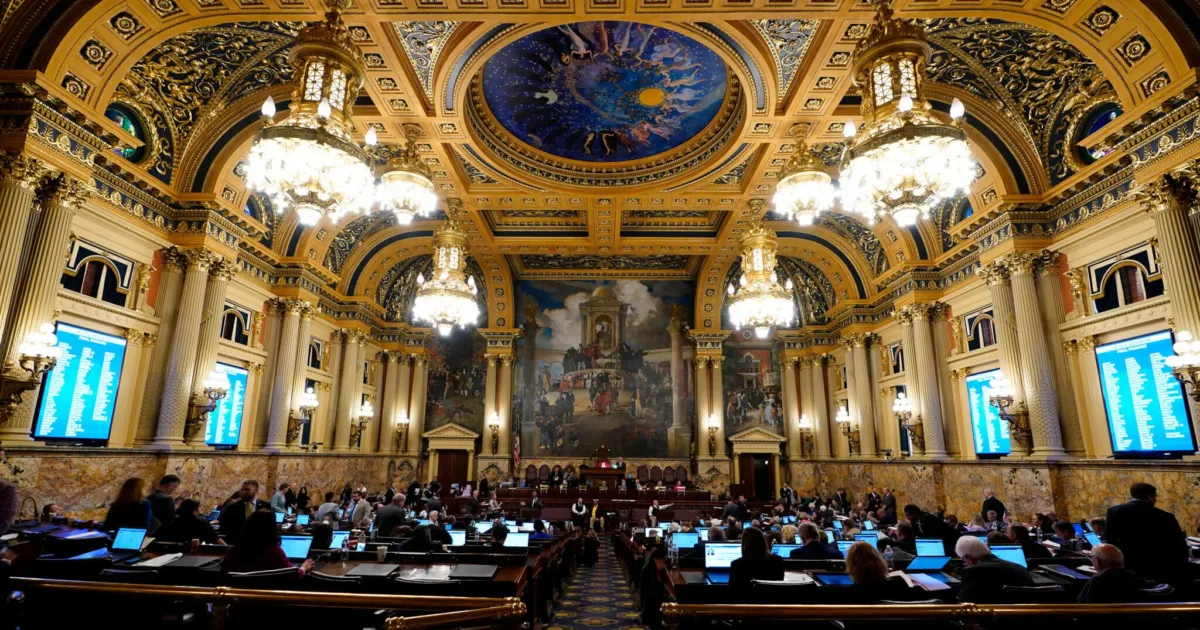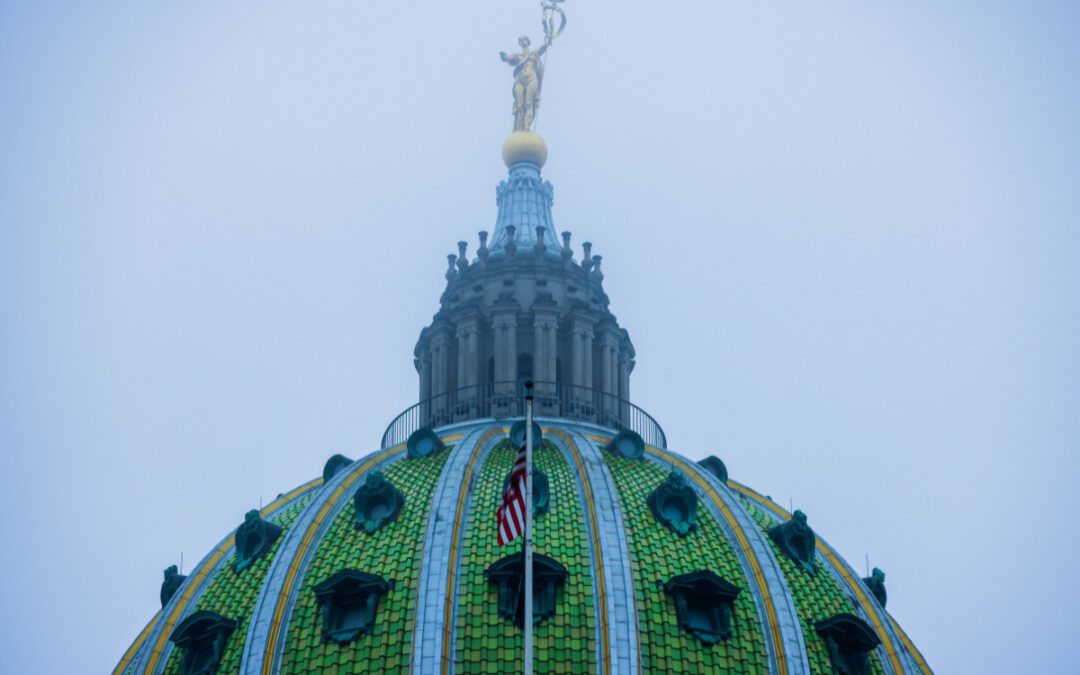The state House convened on Sunday evening to advance a Democrat-backed bill that would fund mass transit agencies across Pennsylvania, as SEPTA and other transit agencies warn of service cuts if imminent action isn’t taken.
House Democrats had hoped to include a mass transit funding increase in this year’s state budget. But that spending plan has still not been passed, six weeks after the constitutionally imposed June 30 deadline.
The move to advance a standalone transit funding bill is something of a pressure tactic on the part of Democratic lawmakers, who say Senate Republicans need to do their part to ensure funding reaches transit agencies, and a budget is passed, before severe service cuts become a necessity.
“We can not tolerate this going on any longer,” said House Majority Leader Matt Bradford (D-Montgomery). “The other body in this building has an obligation to forthwith show what they can do to pass an annual 12-month budget for this commonwealth.”
The bill follows a proposal set forth by Gov. Josh Shapiro, which would direct an additional 1.75% of the state’s total sales tax revenue to transit agencies, in order to meet their needs across the commonwealth. It also incorporates key Republican demands, such as increased funding for roads and bridges in rural areas of the state, and accountability measures that would have transit agencies take steps to address issues like fare evasion, and propose public-private partnerships that could boost revenue.
The House plans to take it up again Monday for final passage.
However, no funding plan can be passed until Senate Republicans are willing to agree to it, and the issue itself is tied up in broader negotiations over the budget that are ongoing. House Democrats, several of whom are from the Philadelphia area, have called mass transit funding one of their highest priorities. Passing a standalone bill to address the issue would mean Republicans giving up a bargaining chip in broader budget negotiations.
“This is not going to become law,” said House Minority Leader Jesse Topper (R-Bedford). Referring to broader budget talks between party leaders, he added, “If we want to do the job, it has to be in that negotiation. Passing bills just to show we can pass them out of the chamber sets us back in that initiative.”
The Senate is scheduled to return on Tuesday, but spokespeople for Majority Leader Joe Pittman (R-Indiana) and President Pro Tempore Kim Ward (R-Westmoreland) did not respond to requests for comment from the Capital-Star, including questions about whether they plan to bring the transit bill for a vote, or propose a larger plan for the state budget.
Bills coming due
Most Pennsylvanians likely won’t have noticed any impacts on their day-to-day lives because of lawmakers’ failure to pass a budget by the deadline. But that could soon change.
Last week, SEPTA announced that, unless lawmakers can secure new funding by Aug. 14, service will have to be cut by 20%. That would mean the elimination of 32 routes and fewer trips on remaining bus and train lines. If funding is not increased after that, SEPTA says it will have to make more drastic cuts, including the elimination of five rail lines, 18 additional bus routes and the implementation of a 9 p.m. curfew. An estimated 800,000 people a day use SEPTA trains and buses.
Across the commonwealth, many transit agencies, serving urban, rural and suburban areas, could soon be facing similar decisions if the budget deadlock continues. More than one million Pennsylvanians – about one in 13 – utilize mass transit services each day.
The agencies not only provide fixed route options like bus and train service, but play a key role in the operation of the state’s Shared-Ride program. The service provides seniors and disabled people with subsidized transportation to places like doctor’s appointments and grocery stores they may be unable to reach on their own.
County government officials across the state have also warned that, if budget negotiations in Harrisburg drag on much longer, safety net programs will likely be the next to feel the strain.
Many county-run services, such as rape crisis centers, child support enforcement programs, behavioral health services, local health departments and more, are funded at least in part by money from the state. Without a spending plan approved by lawmakers, payments will soon be delayed, which means county governments could have to cut services or begin to triage with the funds they have available.
School districts may also be forced to make due with less until lawmakers pass a budget enabling the state to distribute money.
Where do things stand?
Lawmakers, however, have been tight-lipped about what progress has and hasn’t been made in negotiations between Shapiro and leaders of the House Democratic and Senate Republican caucuses.
Primarily, it’s up to the governor, the majority leaders in the two chambers, and the chairs of the House and Senate appropriations committees, to reach an agreement that can earn support from a majority of lawmakers in their caucuses.
In previous press conferences, Senate GOP leaders said their goal is to rein in spending and address the structural deficit in the commonwealth’s existing budget.
While the state’s rainy day fund has more than $7 billion, Republicans have stressed that the money is easier to spend than to save. Treasurer Stacy Garrity has said the fund could support the expenses of the state’s general fund for just over 53 days.
Ward also recently told reporters that she would be open to passing a short-term budget, allowing the state to continue funding schools and other services and allowing lawmakers more time to bridge their differences.
Shapiro, however, appeared to push back on the idea at a press conference Sunday.
“We are past the point of short-term stopgap measures,” he said.
Democratic leaders, meanwhile, have been vocal about the need to fund mass transit before services across the commonwealth are cut, but have offered little insight into what other issues may be the source of disagreement.
“40% of this commonwealth’s revenue comes from southeastern Pennsylvania,” House Appropriations Chair Jordan Harris (D-Philadelphia), told reporters Sunday. “ If folks cannot get to work and commerce doesn’t happen in southeastern Pennsylvania, it will eventually affect the budget of the entire commonwealth.”
Harris also stressed that the Democratic-controlled House already passed a full budget, as well as four standalone transit funding bills, though the Senate has yet to take similar action.
The budget bill the House voted on last month would see the state spend less than what Shapiro proposed in his February budget address, an apparent concession to Senate Republicans, who have said they want to shrink the deficit.
“We just passed a budget that was a billion dollars short [of Shapiro’s proposal]. What the hell else do they want us to do?,” Harris said. “They need to pass something. They need to show us something that we can get done so we can close this thing out.”
Speaking to PCN last month, Pittman said that the budget already passed by the House was not reflective of ongoing negotiations.
“What the House passed was not something that we agreed to, and that’s okay. They have their vision of how the budget should look and we have our own vision,” he said. “In divided government, we have some very philosophical differences that are deep, and those deep philosophical differences need to be reconciled somehow, some way.”
Asked at Sunday’s press conference whether the Senate’s return is an indication lawmakers are ready to move on transit funding or a budget, Shapiro said, “I’m not going to negotiate with Leader Bradford and Leader Pittman through the media.”
However, in recent weeks Pittman has also told reporters that Republicans are interested in school choice measures — public funding to help families afford private school tuition.
The issue represents a particular sore spot for some Republicans supporters, and a stain on their relationship with Shapiro. In 2023, after backing the GOP-supported plan to include funding for school vouchers in that year’s budget, Shapiro ultimately reneged. The House Democratic majority refused to pass a budget that had already passed the Senate over the measure, so Shapiro agreed to veto the funding if the chamber passed the legislation.
Pittman has also signaled support for regulating so-called skill games, slot machine-like devices that have grown common in Pennsylvania restaurants and corner stores. As it stands, they’re not subject to taxes and regulations like the games found in casinos.
Taxing skill games is one proposal to bring in new revenue and fill the state’s deficit. Another proposal, legalizing and taxing recreational marijuana, is supported by House Democrats and a handful of GOP lawmakers, but Senate Republican leaders like Ward and Pittman have thrown cold water on the idea.










